Summer School on Bidirectional Transformations
25th to 29th July 2016

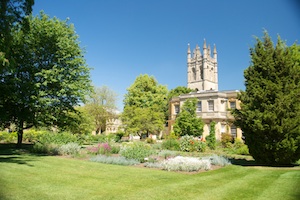
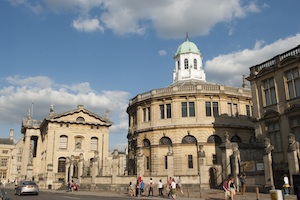
Topic
Bidirectional transformations (BX) are means of maintaining consistency between multiple information sources: when one source is edited, the others may need updating to restore consistency. BX have applications in databases, user interface design, model-driven development, and many other domains. This summer school is one of the closing activities on the Theory of Least Change for BX project at Oxford and Edinburgh. It brings together leading researchers in BX, spanning theory and practice, for a week of lectures in beautiful Oxford. It will be aimed at doctoral students in computer science, but will also be suitable for strong master's students and for researchers.
Lecturers
 |
Anthony Anjorin (AA), University of Paderborn, DEBx with Triple Graph GrammarsTriple Graph Grammars (TGGs) provide a rule-based means of specifying a consistency relation over two graph languages. TGG rules are direction agnostic, describing the simultaneous creation of pairs of consistent graphs in both languages. Correspondences between elements in the different languages are thereby represented explicitly as a third “correspondence” graph. Many useful tools can be derived automatically from a TGG including an instance generator, consistent forward and backward transformations, and incrementally working synchronisers, which are able to realise forward and backward change propagation without incurring unnecessary information loss. In this lecture, TGGs will be introduced as a pragmatic implementation of the symmetric delta lens framework (proposed by Diskin et al.). To complement this theoretical foundation, a hands-on session and carefully chosen examples will be used to develop a practical intuition for TGGs, using eMoflon — one of many actively developed TGG tools. Materials: Virtual machine; Lecture 1; Lecture 2; Lecture 3 |
 |
Martin Hofmann (MH), Ludwig-Maximilians-Universität München, DEModular Edit LensesThese talks will present the edit lens framework by Wagner, Pierce, MH [HPW], and compare it to other approaches. After briefly recapitulating symmetric lense and their relationship to asymmetric lenses and constraint maintainers we define the HPW edit lenses based on monoids of edit operations. We explain the relationship to other approaches to edit operations notably those based on categories and on exact sequences. We then focus on the modular nature of HPW edit lenses by presenting various lens combinators for container-like data structures. In the last lecture we will present loose ends and open problems. Materials: Slides |
 |
Zhenjiang Hu (ZH), National Institute of Informatics, JPPrinciples and Practice of Putback-based Bidirectional Programming in BiGULPutback-based bidirectional programming allows the programmer to write only one putback transformation, from which the unique corresponding forward transformation is derived for free. A key distinguishing feature of putback-based bidirectional programming is its full control over the bidirectional behavior, which is important to specify intended bidirectional transformations without any ambiguity. In this tutorial, we will introduce BiGUL, a simple but powerful putback-based bidirectional programming language, explaining its principle, showing how to develop various of bidirectional transformations in BiGUL, demonstrating its application to adaptive software development, and highlighting important issues and challenges for future work. This tutorial will be given jointly with Hsiang-Shang Ko. Materials: Putback-Based BX website; source materials; slides for Lecture 1, Lecture 2, and Lecture 3 |
 |
Mike Johnson (MJ), Macquarie University, AUMathematical Foundations of Bidirectional TransformationsThis series of lectures presents a range of mathematical analyses of bidirectional transformations. The aim is to be self-contained (so that no significant mathematical prerequisites are expected), and to present sufficient material to reach some of the open questions in the field. The mathematical analysis of bidirectional transformations is intended to revise, simplify and systematise participants' knowledge of bidirectional transformations gained in other lectures. The focus is on techniques that have wide application. |
 |
Richard Paige (RP), University of York, UKEngineering Bidirectional TransformationsBidirectional transformations are artifacts that can (and probably should) be engineered, following a suitable lifecycle. In these lectures, we consider different phases of a BX engineering lifecycle, and explore ways in which the requirements, architectures, designs and implementations of BX can be specified, and support that can be used to help verify or validate such artifacts. |
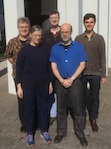 |
The TLCBX team (BX), University of Edinburgh and University of Oxford, UKIntroduction, TLCBX Results, ConclusionThe TLCBX team will have three lecture slots at the school. The first slot of the week will introduce general notions of BX (including the view-update problem, the relational perspective via consistency restoration, varieties of lens, and triple graph grammars), in order to establish a common foundation and highlight some differences in approach for the week; in particular, we will summarize our own work on effectful lenses and the entangled state monad. A second slot will cover recent work focussing on complement structures as witnesses to consistency, including the use of dependent types (with witnesses more specifically to proofs of consistency). In the final slot of the week, we will discuss our work on the least change principle in BX and on BX's potential to transform the development and use of software, drawing out and bringing together some common threads in the other lecturers' sessions. Materials: Welcome; Introduction; Entangled State; Dependent Types; Least Change |
Lecture Notes
The lecture notes from the school appear as Volume 9715 of the Springer LNCS Tutorials series. All registered participants will receive a copy.
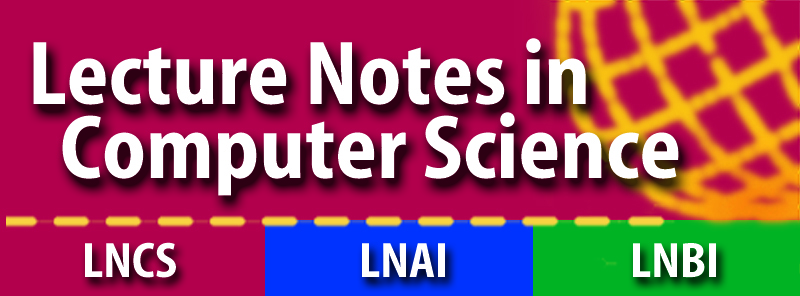
Schedule
The proposed schedule is as below. Each lecture session is 90 minutes; there are 30-minute coffee breaks mid-morning and mid-afternoon, and a 90-minute lunchbreak.
| 0900 | 1100 | 1400 | 1600 | evening | |
| Mon | BX | MJ | AA | MH | punting |
| Tue | ZH | RP | MH | AA | free |
| Wed | MJ | ZH | BX | RP | banquet |
| Thu | ZH | AA | RP | MH | tour |
| Fri | MJ | BX |
On Sunday evening, we will meet for drinks at the Rose and Crown pub. On Monday, we'll take a punting trip on the River Cherwell upstream to the Victoria Arms. On Tuesday, there is nothing planned; participants may want to go to see one of several Shakespeare plays around Oxford. On Wednesday, we have a banquet in the Radcliffe Observatory Building at Green Templeton College. On Thursday, we will take a walking tour around Oxford, ending up at the Eagle and Child pub.
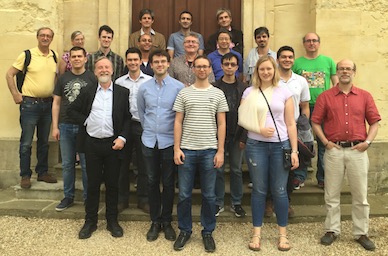
Venue
The school will take place at Lady Margaret Hall in leafy North Oxford, right next to the University Parks and the River Cherwell and a short walk from the City Centre. LMH is one of the constituent colleges of the University of Oxford; it was founded in 1878 as the first women's college in Oxford. Our lectures will take place in the splendid Simpkins Lee Theatre in the Pipe Partridge Building, completed in 2010. The college provides some travel guidance.
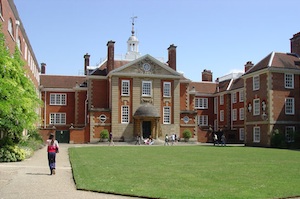
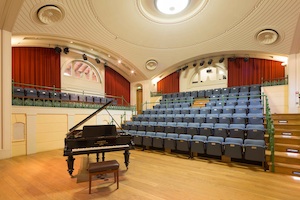
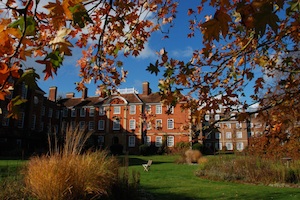
Registration
The Summer School is financially partially supported by EPSRC. There is an early registration fee of £200 (or £150 for students) if booked before the early registration deadline of 10th June, rising to £250 (or £200 for students) after that point. The registration fee includes lunches, coffee breaks, and a banquet one evening. We have reserved bed-and-breakfast accommodation in college, at £62.50 per night in an ensuite room; there are also a few standard rooms available at £58 per night, but please contact Karen Barnes in advance if you would like to reserve one of them. Those rooms will be released after the early registration deadline, after which point there will be no guarantee of accommodation. Space is limited; there is room for 40 students. Please register through the web shop.
Contact
For any questions about administrative matters, please contact Karen Barnes; for any questions about the scientific content of the school, please contact Jeremy Gibbons.
